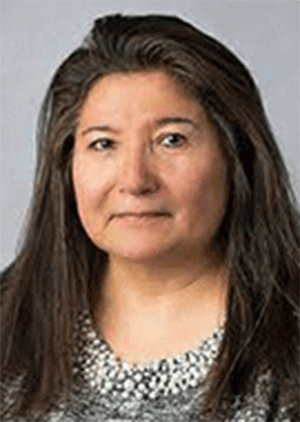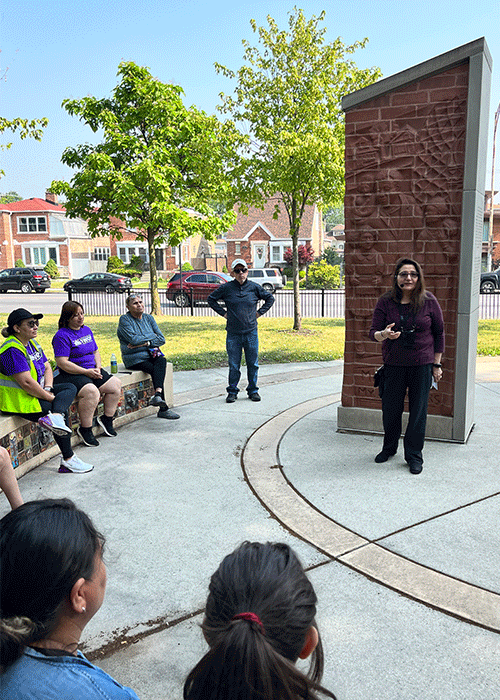Radiologists Can Educate Patients, Help Them Make Healthy Decisions
Participation in community health projects helps radiologists build trust, strengthen connections

Martha Menchaca, MD, PhD, is an assistant professor of radiology at the University of Illinois College of Medicine in Chicago, where she directs the Lung Cancer Registry for low-dose CT screening. With a particular interest in cancer health care disparities, Dr. Menchaca is an RSNA Health Equity Committee member.
As a radiologist in an urban academic center in Chicago, most of the patients I care for are from underrepresented communities and have limited access to health care and health education. Myriad barriers cause many of our patients to seek health care later in their disease course, which increases health disparities.
As an RSNA member, I know the many resources available via RadiologyInfo.org to help radiologists provide patient-centered care. This resource leads to positive outcomes by increasing engagement in guidance and education.
Physicians focus on improving patients’ awareness and understanding of imaging procedures and tests, ultimately empowering patients to make better-informed decisions. In addition to helping patients understand their radiology reports, RadiologyInfo.org helps radiologists interact and enhance patient awareness about imaging procedures.
However, in addition to influencing patient education at the workplace, our partnering with community organizations can help improve health education and community awareness about decreasing risk for many diseases. Radiologists can spread their message and increase their influence by working with organizations that provide health care resources through focused health care forums or community outreach activities.

Last year, I was fortunate to participate as a physician volunteer for a Walk with a Doc chapter at the Southwest Organizing Project (SWOP) in Chicago’s South Side. RSNA’s Health Equity Committee identified this opportunity and RSNA provided funding to this chapter and helped me be a part of this program. In addition to SWOP, other community organizations attended the weekly Saturday walk.
The goal of this program is to make health education accessible to anyone, pairing expert education on health topics with an informal walk. I led five walks last year and plan to participate again this summer.
I volunteered for this opportunity because of my prior experience with community health projects and involvement with lay educators. I knew that by sharing knowledge and resources, I could help empower people to make informed decisions about their health and well-being, leading to improved lifestyles and outcomes. Additionally, I think my involvement in this health education initiative contributes, albeit in a small way, to broader changes in community health outcomes and disparities. Being part of a larger movement for positive change is impactful, inspiring and motivating.
An added benefit of participating with the SWOP Walk with a Doc program is the ability to share my handouts with lay health educators, also known as community health workers or peer health educators.
Some of the public health educators are from Resurrection Project, another nonprofit community organization in Chicago. These educators then distribute the handouts to community organizations, expanding the reach of the program.
In preparation for each of the five walks I led, I tailored the information provided to be culturally and ethnically sensitive to resonate with the cultural beliefs, values and preferences of the target audience. Also, by using culturally appropriate examples and metaphors, I could enhance the participants’ understanding and engagement. Additionally, we considered language barriers and health literacy limitations to provide health information that is in clear and simple language, avoiding jargon and technical terms that may be confusing. Educating patients involves giving knowledge about their health and environment and can improve their health and their families’.
RSNA will again sponsor the SWOP Walk With a Doc program this year to support an updated and expanded program, and I look forward to participating. Walk with a Doc is a nationwide U.S. program that may have a chapter in your area. Radiologists can partner with local programs like Walk with a Doc to help improve the well-being of members of their community. In my experience, volunteering in this way can bring a deep sense of fulfillment and purpose.